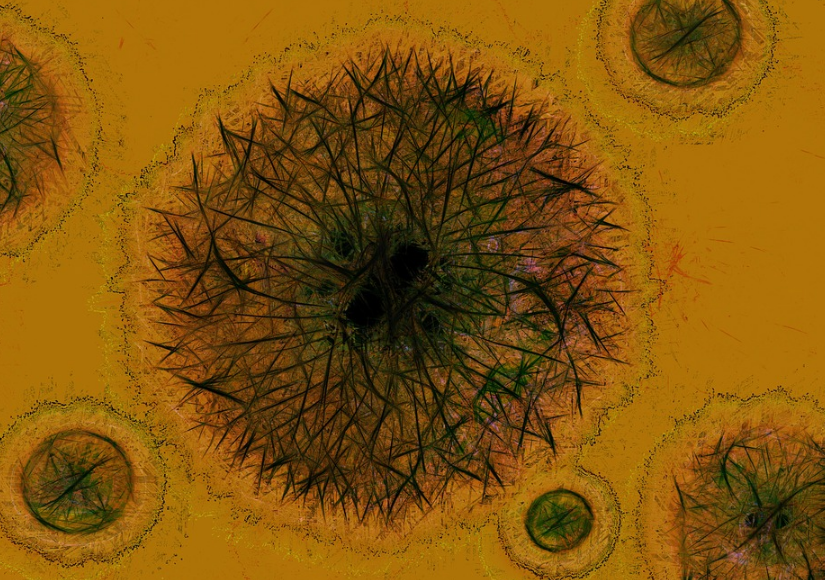Sports Performance, Recovery &
The Candida Connection

By: Amy Lewis, Fitness and Nutrition Expert

You train hard, eat well, stay hydrated, and get plenty of sleep (well you try to anyway) yet you’re still struggling with fatigue, slow recovery time, and lack of results.
It can be frustrating when we finally bite the bullet, commit to a fitness program only to find that our body isn’t cooperating the way we’d like it to. We blame it on lack of conditioning, or aging.
Looking for answers you check in with your trainer/fitness pro who asks you if you’re eating enough protein, drinking enough water, and getting enough rest. You share that you do all of those things and still the results are slow, leaving both you, and your trainer, stumped.
Don’t worry, it’s not your fault! And yes…there is a solution.
The human body is an amazing machine with intricate, efficient systems to make it all work harmoniously.
Stress is a part of life no matter who we are. We place stress on our bodies through physical, mental and emotional means. The body’s response to stress is both hormonal and inflammatory.
So what does this mean for you and your fitness plan?
When we are stressed out our body sets off a series of reactions. The human body is designed to deal with short-term stressors, and is able to return to “normal” once the stressors are handled.
The body does not differentiate between mental and emotional stressors vs. physical activity stressors.
All stressors cause a hormonal reaction which include the release of the following:
- epinephrine (to increase heart rate and blood flow to the muscles)
- norepinephrine (to raise blood pressure)
- cortisol (to mobilize fuel sources and lower any inflammation)
- growth hormone and glucagons (to protect blood glucose and mobilize other energy sources for fuel)
These responses allowed our ancestors to fight or flee in order to survive.
When we exercise these same hormones are released along with an inflammatory response to repair damaged cells and stimulate muscle growth at the same time.
When our bodies are healthy, this is a normal, natural occurrence and we can recover relatively quickly and recognize our gains in strength, endurance, and weight loss.
So how can you tell if there’s something bigger going on?
As we begin to endure longer recovery times, and more fatigue, we often attribute it to overtraining or aging.
But what if something else is going on?
Chronic fatigue, lower endurance, and reduced strength and recovery often indicate there is something else going on, often an underlying chronic inflammation. Chronic inflammation can be caused by many factors including poor diet, lack of sleep, emotional and physical stress, or an infectious agent.
Meet Candida Albicans
 One of the most common infectious agents is a tiny sugar bug called Candida Albicans. In fact 75% of women have a yeast overgrowth at some point! That means, millions of women everywhere suffer with Candida. Candida occurs naturally in the intestinal lining, the mouth, skin, and in women, the vagina.
One of the most common infectious agents is a tiny sugar bug called Candida Albicans. In fact 75% of women have a yeast overgrowth at some point! That means, millions of women everywhere suffer with Candida. Candida occurs naturally in the intestinal lining, the mouth, skin, and in women, the vagina.
When this organism is in proper balance, it actually helps the gut function. However, our modern lives create the perfect opportunity for mass growth of the yeast population, causing all kinds of bodily ailments.
When we are faced with daily stressors, environmental pollutants, along with a poor diet and lack of sleep, we create an environment within our bodies for the yeast (Candida Albicans is a form of yeast or fungus) population to explode.
As the yeast invades the body systems, a myriad of varied symptoms arise, including longer recovery times, chronic fatigue, loss of strength and endurance, inexplicable weight gain, and compromised sports and sexual performance.
There is a Solution
You’re probably wondering what you can do to eradicate the yeast from your body so that you can enjoy the energy for all of life’s demands plus your favorite activities.
You can kiss Candida goodbye, and enjoy quicker recovery, reduced inflammation, along with weight loss, strength gains, and increased endurance.
5 Ways to Fight Candida and Get Your Life Back
- Increase the “good” bacteria: You’ll want to help your gut to balance out the “good” and “bad” bacteria for optimal health and reduction of unwanted yeast overload. You can do this by simply adding a probiotic into your daily regimen. This will re-establish the gut friendly bacteria, while pushing out the bad stuff.
- Improve Your Diet: Take a look at what you are putting into your body daily. You’ll want to eliminate sugars. Sugars feed the Candida, helping it to explode in population.
- Exercise: Yes! You’ll want to continue (or begin) exercising. Exercise increases blood flow allowing your body to release toxins through the breath and the skin. Be sure to develop an exercise program that supports you where you are now. As you rid your body of the yeast, your energy levels and intensity of workouts will increase. Take it day by day, and listen to your body.
- Avoid Stress: In our go-go-go world it’s hard to imagine life without stress. You’ll want to develop stress management tools you can use anywhere. We tend to overeat or grab sweets when we are stressed out. Understanding our stress, and having ways to handle it helps us achieve our goals of overall health by avoiding the sugar trap when stressed.
- Avoid Chemicals and Medications: Candida Albicans is an insidious organism. If not kept in check, the Candida will invade the body systemically. When we have a yeast overgrowth in our bodies, we are more likely to react to chemicals and meds such as antibiotics and steroids. Avoid exposure to these substances so that you can heal your body and restore your natural energy levels and recovery time.
Take Care of You
Incorporate the 5 steps above to start the road to recovery and eradicating unwanted yeast overgrowth.
You’ll be amazed at what your body can do as you release the yeast overgrowth and return to homeostasis within your body.
Be patient with yourself. Getting rid of Candida Albicans can take some time. So get started right away by cleaning up your diet, incorporating a probiotic into your day, continuing to exercise, avoiding/dealing with stressors, and avoiding unnecessary chemicals and meds.
You’ll find yourself losing the weight you inexplicably gained, gaining mental clarity, improving your recovery time, and leveling out your moods. You’ll even be able to improve sports performance over time.
Want to learn more?